In May 2025, Professor Jove Jim S. Aguas, PhD, and...
Read More
Announcements

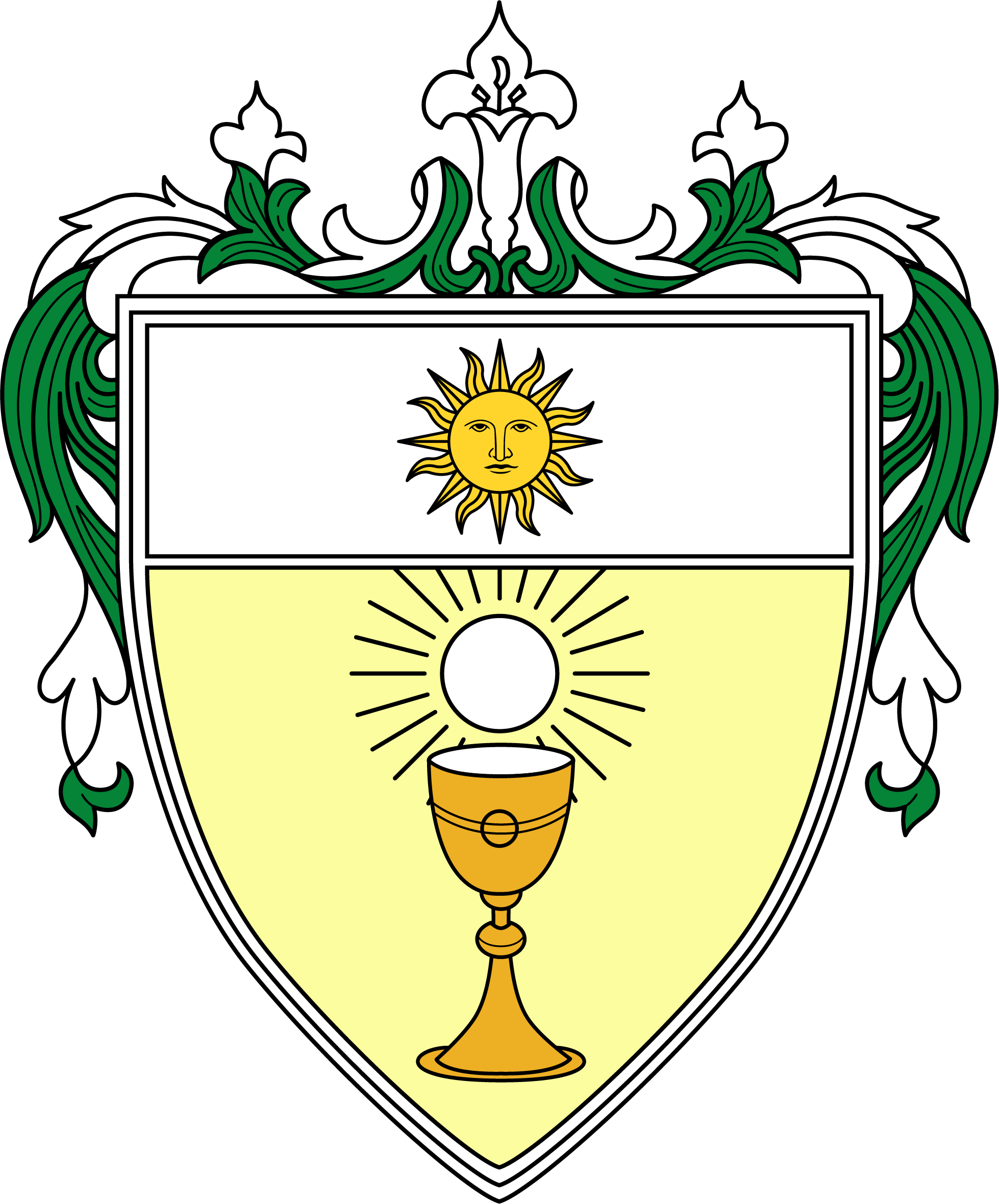
The cyclical courses of study offered in the Faculty of Theology lead to the following degrees: Baccalaureate in Theology (3 years) for the first cycle; Licentiate in Theology (2-5 years) for the second cycle; Doctorate in Theology (2-5 years) for the third cycle.
As a matter of general policy, enrollees for the Licentiate or Doctorate degree must finish the program within five (5) years following their enrollment. Those who fail to complete their degree within the prescribed period must take refresher courses to be determined by the Dean. They are, however, given only a maximum of ten years (inclusive of the five-year initial academic residency) to complete the program, beyond which they may be advised to discontinue their enrollment in the Faculty or repeat the whole program applied for.
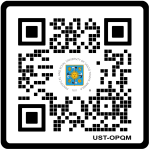
Send us your feedback
GENERAL ADMISSION REQUIREMENTS
FIRST CYCLE: BACCALAUREATE IN THEOLOGY
A. Admission Requirements
Applicants for the First Cycle, for them to be admitted as an ordinary student, must:
SECOND CYCLE: LICENTIATE IN THEOLOGY
A. Admission Requirements
THIRD CYCLE: DOCTORATE IN THEOLOGY
A. Admission Requirements

The Philippiniana Sacra is the official publication of the Ecclesiastical Faculties of the University of Santo Tomas, Manila, Philippines. It is published three times a year with an Ecclesiastical Approval.
Articles written in English, Spanish, Latin, and Filipino (with English translation) and focusing on Philosophy, Theology, and Canon Law are welcome. Submitted manuscripts are subjected to a qualitative assessment of the editorial board and double-blind review.
The Philippiniana Sacra is presently a Commission on Higher Education-recognized research journal, with Category A-2 rank.
In May 2025, Professor Jove Jim S. Aguas, PhD, and...
Read MoreThe Diocese of Pagadian has a new bishop in Bishop-Elect...
Read More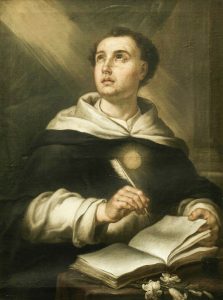
Patron of the University of Santo Tomás
Patron of the UST Faculty of Sacred Theology
Feast Day: January 28
The revered Angelic Doctor of the Church, Saint Thomas Aquinas, is famous for his magnum opus, the Summa Theologica.
His legacy has left such a profound impact that educational institutions have been named after him, including the Pontifical and Royal University of Santo Tomas, Manila, the Catholic University of the Philippines.
Thomas was born into a noble family who hailed from Aquino between 1224/1225 in Castello di Roccasecca in the Kingdom of Two Sicilies.
Educated under the Benedictine Rule from 1230-1239, he studied in the Abbazia di Montecassino. Inspired by the religious life, he had his Vestition in Covento di s. Domenico Maggiore, Naples, on May 24, 1244. He took his novitiate two years after in the Couvent de St.-Jacques or the Faculty of Philosophy, University of Paris, some time between 1247-1248.
Finally, he was ordained into the Order of Preachers in Dominikanerkloster Heilig Kreuz, Cologne, around 1251.
Thomas’ scholarship was staggering. Apart from the Summa Theologica, he wrote nine exegeses of Scriptural books, two famous prayers, five expert opinions or responsa, nine treatises in the form of academic disputations, eight philosophical treatises, and five polemical works, among others.
Thomas died on March 7, 1274 due to severe brain hemorrhage. His death represented a profound loss to the Catholic Church. No less than his teacher, the would-be Saint Albert the Great (Albertus Magnus) expressed sorrow at the loss of a profound theologian.
In recognition of his contributions and unwavering faith, Thomas was canonized by Pope John XXII on July 18, 1323. He is the patron saint of Catholic academies, schools, colleges, and universities.
Source:
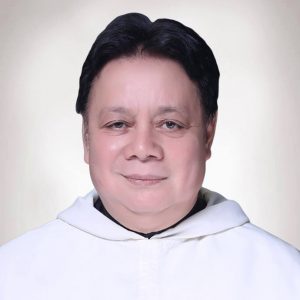
Rev. Fr. Rodel E. Aligan, O.P., SThD
Doctor of Sacred Theology
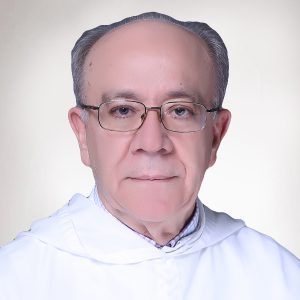
Rev. Fr. Angel A. Aparicio, O.P., SSL
Associate Professor
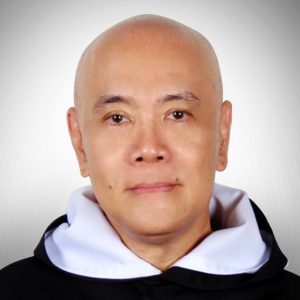
Rev. Fr. Rolando V. de la Rosa, O.P., PhD, SThD
Doctor of Sacred Theology
Doctor of Philosophy
 Rev. Fr. Fausto B. Gomez, O.P., SThD
Rev. Fr. Fausto B. Gomez, O.P., SThD
Doctor of Sacred Theology
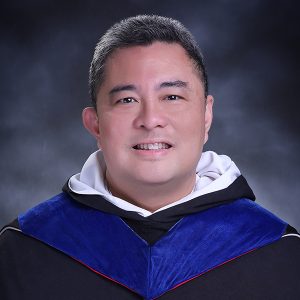
Rev. fr. Nicanor Pier Giorgio Austriaco, O.P., PhD, SThD
Doctor of Philosophy in Biology
Doctor of Sacred Theology
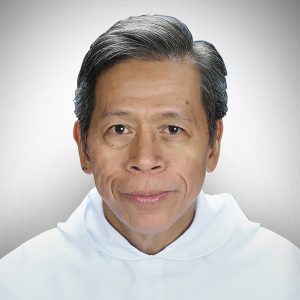
Rev. Fr. Virgilio A. Ojoy, O.P., PhD, SThD
Doctor of Sacred Theology
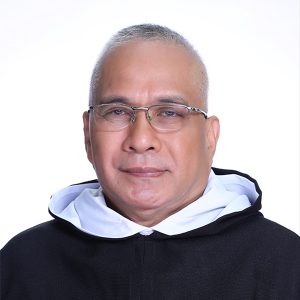
Rev. Fr. Edgardo D. Alaurin, O.P., SThD
Doctor of Sacred Theology

Rev. Fr. Delfo Canceran, O.P., PhD, SThD
Doctor of Sacred Theology
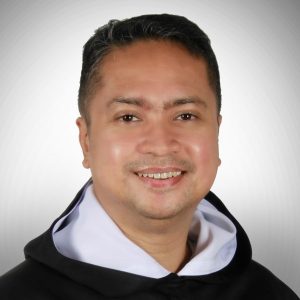
Rev. Fr. Cecilio Vladimire E. Magboo, O.P., SThD
Doctor of Sacred Theology
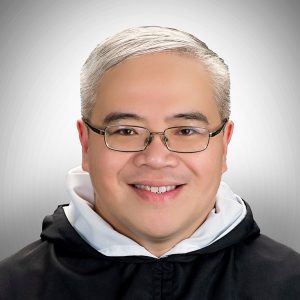
Rev. Fr. Clarence Victor Marquez, O.P., SThD
Doctor of Sacred Theology

Rev. Fr. Isidro C. Abaño, O.P., SThL, MA
Licentiate in Sacred Theology
Master of Arts in Theology
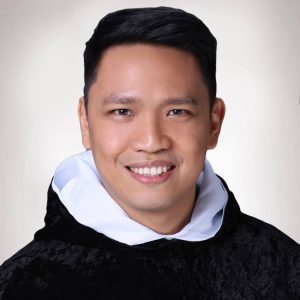
Rev. Fr. Dexter A. Austria, O.P., SThD
Doctor of Sacred Theology
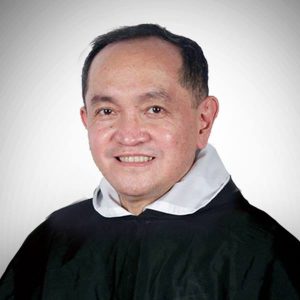
Rev. Fr. Ferdinand L. Bautista, O.P. SThL-MA, PhD
Licentiate in Sacred Technology
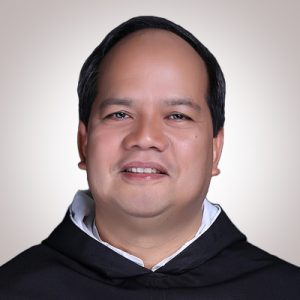
Rev. Fr. Roberto . Luanzon, Jr., O.P., SThD, DL
Doctor of Sacred Theology
Doctor of Liturgy

Rev. Fr. Adrian Adiredjo, O.P., SThD
Doctor of Sacred Theology
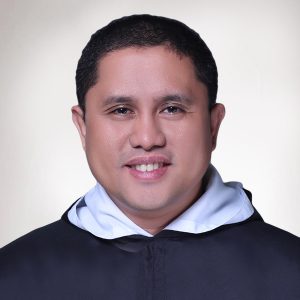
Rev. Fr. Christopher Jeffrey L. Aytona, O.P., SThL
Licentiate in Sacred Theology
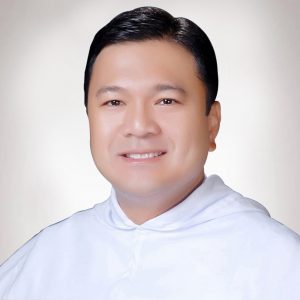
Rev. Fr. Winston Ferdinand Roman I F. Cabading, O.P., SThL
Licentiate in Sacred Theology
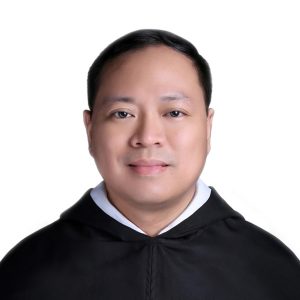
Rev. Fr. Louie R. Coronel, O.P. EHL
Licentiate in Church History
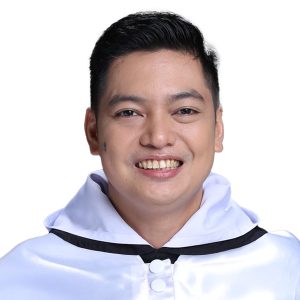
Rev. Fr. Jerone R. Geronimo, O.P., SThD
Licentiate in Theology
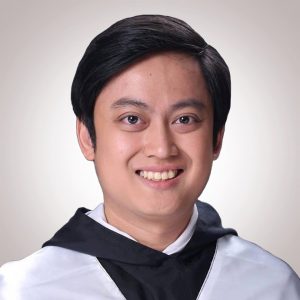
Rev. Fr. Jayson R. Gonzales, O.P., SThD cand
Licentiate in Theology
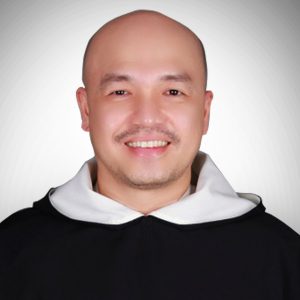
Rev. Fr. Ivan Paul N. Obando, O.P., SThD
Doctor of Sacred Theology
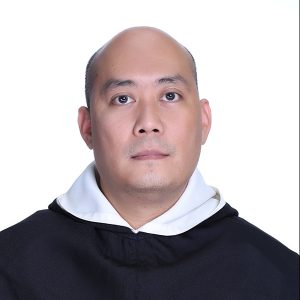
Rev. Fr. Wenifredo V. Padilla III, O.P., SThL
Licentiate in Sacred Theology

Rev. Fr. Art Vincent M. Pangan, O.P., SThL
Licentiate in Sacred Theology
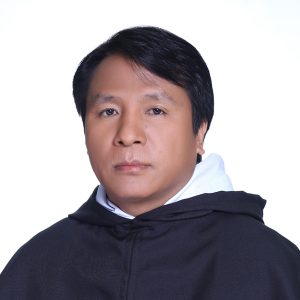
Rev. Fr. George Phe Mang, O.P., SThL
Licentiate in Sacred Theology

Rev. Fr. Simon Peter DL. Ramos, O.P., SThL
Licentiate in Sacred Theology
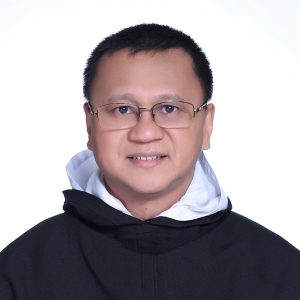
Rev. Fr. Ramon T. Salibay, O.P., SThL
Licentiate in Sacred Theology

Rev. Fr. Hilario V. Sicat, O.P., SThL
Licentiate in Sacred Theology

Rev. Fr. John Paul Sontillano, O.P., SThL
Licentiate in Sacred Theology
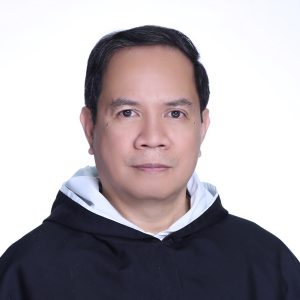
Rev. Fr. Pablo T. Tiong, O.P., SThL-MA
Licentiate in Sacred Theology

Rev. Fr. Jessie R. Yap, EHL
Licentiate in Church History
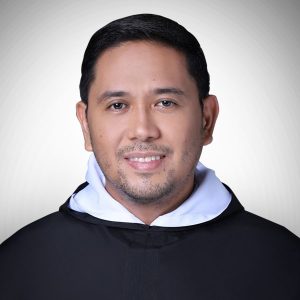
Rev. fr. Romualdo P. Cabanatan, O.P., JCD
Doctor of Canon Law

Rev. fr. Thomas Eggensperger, O.P., PhD

Rev. fr. Arden Xerxes D. Dacuma, O.P., JCL
Licentiate in Canon Law
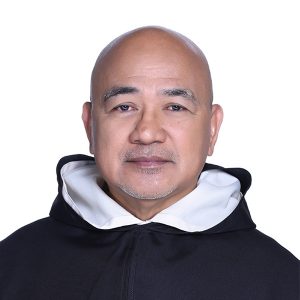
Rev. fr. Ermito G. de Sagon, O.P., SSL
Assistant Professor

Rev. fr. Villiam Štephan Dóci, O.P., DrTheol
Doctor of Theology
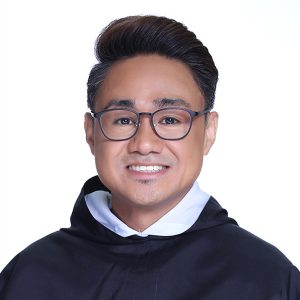
Rev. Fr. Julius Paul . Factora, O.P, JCD
Doctor of Canon Law

Rev. fr. George Kumblumoothil, O.P., SThD
Doctor of Dacred Theology
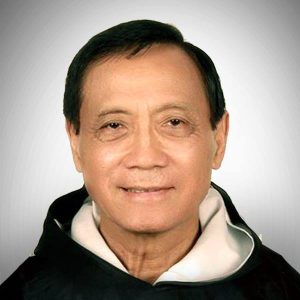
Rev. fr. Jerry R. Manlangit. O.P., PhD
Licentiate in Church History

Rev. fr. Jessie R. Yap, EHL
Licentiate in Church History

Prof. Neriza Adorna, PhD

Rev. fr. Czar Emmanuel Alvarez, OSA, DThScPat, SSL
Doctor of Theology in Patristic Sciences

Rev. fr. Carmelo Arada Jr., PhD, SThL-MA
Licentiate in Sacred Theology
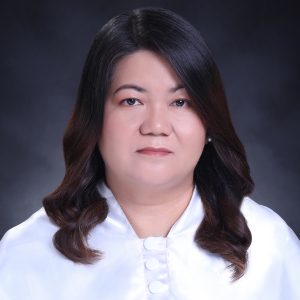
Assoc. Prof. Maila M. Blanza, PhD
Doctor of Philosophy in Theology

Rev. fr. Sammy Canilang, CMF, SThL
Licentiate in Sacred Theology

Rev. fr. Radni Caparas, OAR, SThD
Doctor of Sacred Theology

Sr. Mariela C. De Villa, O.P., MA

Rev. fr. Genaro Diwa, SSL

Rev. fr. Ian Espartero, OAR, SThD
Doctor of Sacred Theology
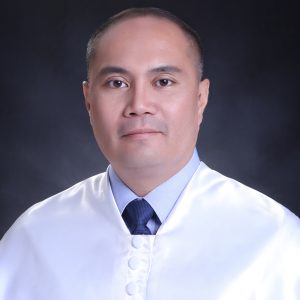
Assoc. Prof. Philip L. Fuentes, PhD, SThD
Doctor of Philosophy in Religious Studies
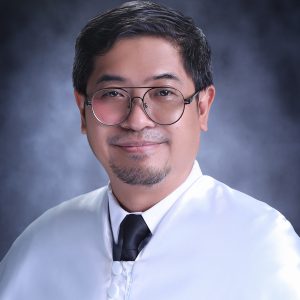
Asso. Prof. Warren S. Mañeja, MA
Master of Arts in Theology

Rev. fr. Emilio Quilatan, OAR, EHD
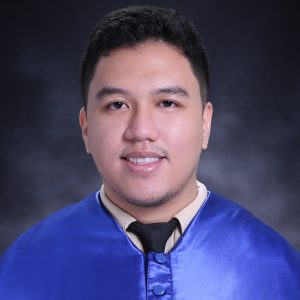
Mr. Blaise D. Ringor, PhD

Rev. fr. Jeffrey Suffrir Segovia, SThD
Doctor of Sacred Theology major in Biblical Theology

Sr. Cecilia Varon, O.P. SThL-MA
Licentiate in Sacred Theology
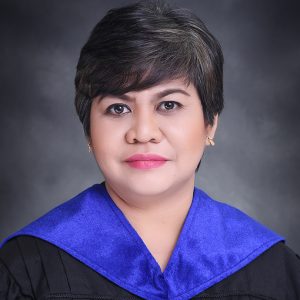

Mr. Jefferson Ong
Office Clerk
(Student Records)

Mrs. Nona Ong
Office Clerk
(Office Communications and Files)

Mr. Jeruel Jireh D. Cebeda
General Clerk
The Ecclesiastical Faculties have always been considered integral units of the University of Santo Tomas, which Leo XIII proclaimed a Pontifical University (Quae Mari Sinico, VII, 17 September 1902), and Pius XII honored with the title of The Catholic University of the Philippines (Litt. Apost. 10 April 1947). The Faculty of Theology is as old as the University itself, since the primary purpose of the Dominican Fathers in founding this institution of learning was to train from among the young men who flocked to their lecture rooms worthy ministers of the altar.
This Faculty, together with the Faculty of Philosophy, received official ecclesiastical recognition in the Brief, In Supereminenti, given on 20 November 1645 in Rome under the pontificate of Innocent X. In 1896, largely influenced by the Government and the unique circumstances of the era, the Faculty of Philosophy was transformed into the Faculty of Philosophy and Letters. However, in 1928, due to the establishment of the Inter-diocesan (also known as Central) Seminary, the original Faculty of Philosophy was reinstated, primarily for seminarians.
Moreover, in response to previous requests of the Dominican Fathers in the Philippines regarding the creation of a Faculty of Canon Law, Innocent XI issued his Brief, Inscrutabili, on 7 August 1681. However, due to the troubled circumstances of the period, the Brief could not be implemented immediately. It was implemented on 11 November 1733. Thus, on 23 October 1733, the King of Spain approved the project, which Clement XII confirmed on 2 September 1734 in his Brief, Dudum Emanarunt.
The Ecclesiastical Faculties of Sacred Theology, Philosophy, and Canon Law have always been considered as integral components of the University of Santo Tomas, which Pope Leo XII proclaimed a Pontifical University on September 17, 1902 through the Constitution Quae Mari Sinico. Pope Pius XII, meanwhile, declared UST as “the Catholic University of the Philippines” in 1947.
The Faculties of Sacred Theology and Philosophy are as old as the University itself. The Foundation Act of the University, dated on April 28, 1611, attests to this as it mentions the establishment of a colegio-seminario (seminary college). The first graduates were granted their academic degrees either in 1629 or 1630. The degrees conferred in UST were ordered to be recognized as valid in any part of the globe after the Brief In Supereminenti, given on November 20, 1645, during the Pontificate of Innocent X, elevated the Colegio into a University. This recognition also made UST open even to those who are not pursuing an ecclesiastical career.
To further widen its service to the local and Asian Churches, the Faculty of Sacred Theology has taken the initiative to empower other theological institutes, schools, or seminaries to confer, through Affiliation, the Baccalaurate degree in Theology; and to confer, through Incorporation, the Licentiate and Doctorate degrees in Theology. The Faculty of Sacred Theology assists these institutes, schools, and seminaries to become affiliated with, or incorporated to, it by helping them meet the requirements of the Holy See for this purpose.
Currently, there is one institute incorporated to the Faculty of Sacred Theology: the Institute for Consecrated Life in Asia founded by the Claretian Missionaries; and four schools / seminaries affiliated to it, namely: the Holy Rosary Major Seminary of the Archdiocese of Caceres, the Immaculate Conception School of Theology of the Archdiocese of Nueva Segovia, the Recoletos School of Theology of the Order of the Augustinian Recollects, and the Dominican Center of Studies of the Province of Martyrs in Vietnam.
The Faculty of Sacred Theology, along with the Faculty of Philosophy and the Faculty of Canon Law, has also contributed in the intellectual formation of modern-day Catholic hierarchy and clergy in local Church of the Philippines and other Asian countries, particularly Bangladesh, China, India, Malaysia, Myanmar, Indonesia, South Korea, Sri Lanka, Thailand, and Vietnam. Some countries from Africa (those from Kenya, Ghana, Nigeria, Tanzania, and Zimbabwe and Oceania (particularly Papua New Guinea and Vanuatu) also send their seminarians and priests to complete their degree in Asia’s oldest existing Ecclesiastical Faculties.
Adapted from: Fr. Rodel E. Aligan, O.P. Fr. Richard G. Ang, O.P., and Fr. Jose Ma. B. Tinoko, O.P. in 400 @ 800: A Tribute to the 8th Centenary of the Dominican Order (1216-2016), published by the University of Santo Tomas